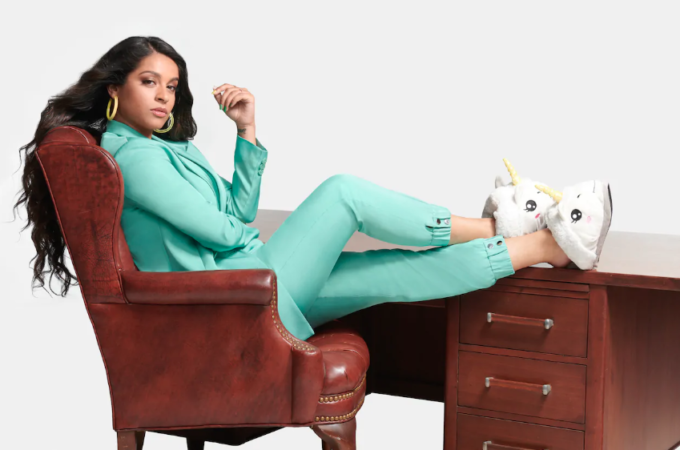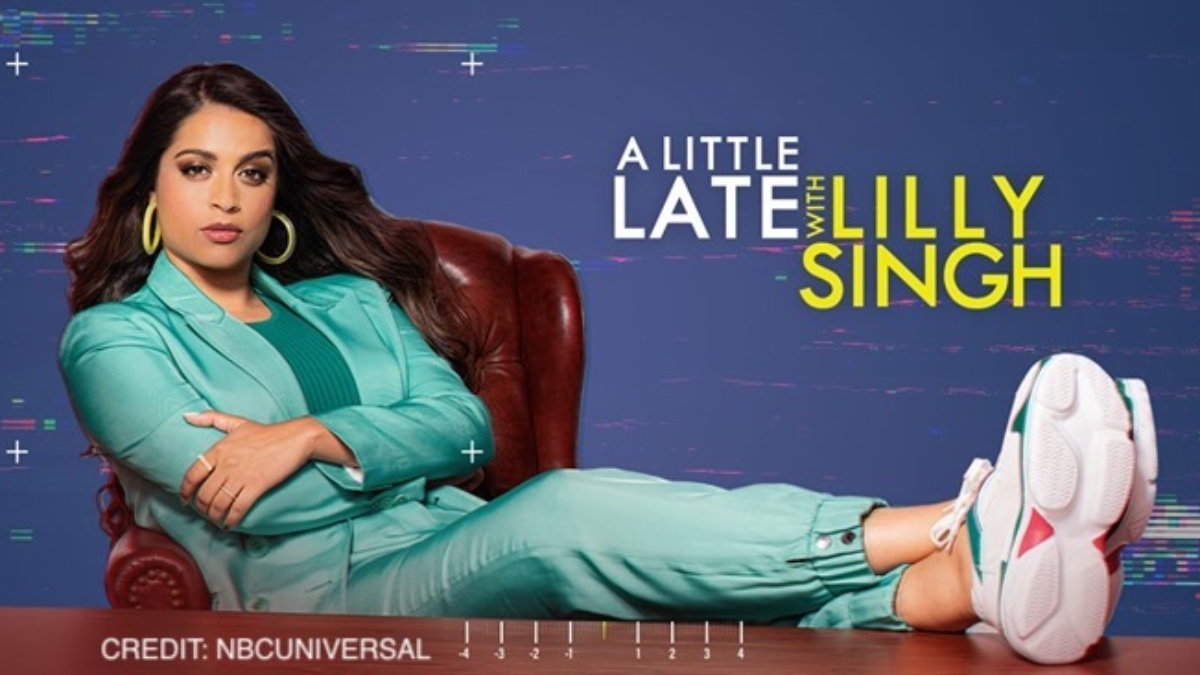The future of YouTube is the future of America
Written By: Demi Guo
Is this how the generation before me feels? And, am I the only one who finds the title beautifully, poetically ironic?
Now that the first talk show host to be an openly bisexual woman of color has left YouTube for national television, she sets the pace for the future of North American media.
NBC’s “A Little Late With Lilly Singh” still isn’t too far from YouTube’s ||Superwoman||, though she has had to change some things up. “There’s something called ‘standards and practices,’ where they say that I can’t say really ratchet things, and I’m like, ‘What?’” Singh said.
Still, hearing that self-ascribed hood accent, Canadian “aboot” and more casual, everyday references to race than I’ve ever felt comfortable saying in an office space full of baby boomers, I can’t believe that something on network TV could be geared towards me with another one of me. The best I could do for years was YouTube.
I even remember seeing a Facebook page called something along the lines of “Isn’t It Funny How Asians Are Nowhere On TV, But Mad Famous On YouTube.” Those were the pre-Ryan Higa x Arden Cho days, when everyone randomly liked Facebook pages with relatable titles. You know the one.
(To the confused older people reading this—the highlight of Middle School Me’s day was going home and watching the hilarious “How to be Ninja” videos cranked out by Ryan Higa’s YouTube account, nigahiga. And then going to school the next day to reenact it with my friends in the cafeteria. It was slapstick and funny, and the stars on screen just happened to be Asian, for a change.)

Of course, the difference now is that she’s a talk show host for NBC, the mothership of NBC News, “The Good Place,” “Saturday Night Live,” and adopted mothership of “Brooklyn 99.” Her commentary is much more pointed and keeping with NBC talk show tradition. Take a shot every time she makes a very much acerbic reference to institutionalized white spaces misunderstanding minorities, be they watches whose “brown” shades don’t match a single skin tone or when she opens her first episode with a joke about Middle America wondering why “Slumdog Millionaire” is playing instead of the “Carson Daly Show.” Take a shot every time Singh does something on screen where, in her words, “the bi jumped out!”
It doesn’t feel contrived … yet. It feels like a breath of fresh air, even for me, a light-skinned East Asian who’s never had to worry about make-up not matching my complexion. The memory of Julie Chen getting plastic surgery done on her eyes in order to somehow be worthy of anchoring on TV follows me. I am not to be disadvantaged just because Americans still somehow can’t comprehend that I’m not a foreign dignitary from China. I’m normal, even if the powers that be are only now learning to accept it.
That is it. Lilly Singh is spearheading something for my generation, which has more minorities than the last in Canada and the United States, which — unlike our immigrant forefathers — grew up here with what Hasan Minhaj has called the “audacity of equality.” We can finally represent our country.
We can represent without having to adhere, against our own nature, to the comparably tried-and-true austere humor of older entertainers like Stephen Colbert and Jimmy Fallon. And — without spoiling anything — she displays and pokes fun of her bisexuality without any shame. There’s no catch to being ourselves on national television, and showing others like us that it’s possible to do so without compromising our identities. Can we say ‘paradigm shift,’ or can we say paradigm shift?
Season premiere guest star Mindy Kaling says as much when she tells Singh, “I can’t wait for my daughter to watch this show. Twenty years from now, when you’re still doing it and wishing you didn’t have to.”
“That’s how we feel about you,” Singh responds to Kaling, who not only starred as the shrill, chatty Kelly on “The Office,” but also wrote and produced the show.
Looking into the future, though, I realize I’ve been a lot more patient than other viewers.
One criticism is of Singh’s perpetuation of modern “blackface,” which has followed her throughout her career. The widespread influence of hip hop culture being bound up with traditionally harmful stereotypes shows in how non-black minorities present themselves: Even now, she opens “A Little Late” with a rap sequence, continuing a habit of pulling from stereotypes of black culture in her YouTube days. She cornrowed her hair, often wore loose clothing and chains in her videos and claimed the word — perhaps facetiously, but nevertheless without accreditation to African American Vernacular English — “bawse” while promoting her book, “How to be a Bawse.”
This harks back to her roots in Scarborough, Canada, where most of the population is made up of “visible minorities.” Much of her mannerisms is due to the Caribbean and South Asian demographics there, perhaps due to the cultural diffusion that often happens in such neighborhoods.
However, they point out, she essentially dips into the stereotypes of black culture that influenced her upbringing to begin with, and cranks it up for the screen. “Singh is barely recognizable when she’s on the covers of magazines like Elle,” wrote McKensie Mack, writer and anti-oppression consultant. “Her hair is unbraided, she doesn’t wear gym shoes, $100 bills or chains and me smells a rat. She doesn’t wear these things because it’s a costume for her, she puts on Blackness in the morning and takes it off at night when she wants to be Desi again.”
Others took to the comments sections to point out how Singh absolutely milks her representation.
User Brianna Larson commented on an opinion video about Singh:
“Lilly: ‘The media calls me a “bisexual woman of color” so much I’m thinking I’m going to have to change my name.’
Also Lily [sic] every 4 seconds: hey did you know I’m an Indian woman.”

User Rohan Gupta commented on an NBC snippet of her first episode:
“She should have asked Hasan how to do race related jokes.”

The general consensus on that side is that she made one race-related joke too many. That’s what happens when this voice has been left out of mainstream media for too long: A dam bursts on what minorities have been repeating for years. Singh, in her first three episodes, has established racial jokes as a one-note schtick.
Identity is the schtick of YouTube stars like Singh, Jasmeet Singh Raina and Ryan Higa. It’s not tiring or stale. It’s the voice of the people, if you will. It’s developed in the context of its makers speaking for themselves, for others who have felt the same way but never got to see themselves on a stage. There’s nothing to prove to anyone else.
Now she’s on the stage, whose shut curtains led to her YouTube stardom in the first place. There’s a bigger system than her, and she just has a slot in it. NBC has ratings to maintain, current events to comment on, a jealous hustle to stay relevant. There’s a sense of commodifying the culture for the screen by beating a dead horse. Furthermore, the format of a 20-minute show is also different from shorter home music videos and vlogs.
Moving forward, perhaps she could add more nuance to her jokes, lest they fall stale and end up hitting a line where things become more offensive than progressive.
Hasan Minhaj is Hasan Minhaj, and Lilly Singh is Lilly Singh. While a seasoned YouTuber, she is still a fledgling talk show host. She has to adapt.
Regardless, American television has seen its first bisexual woman of color, and she’s pulled right from this generation’s hegemony. She has a lot to catch up to now that she’s on the national stage, and a lot of precedents to set, now that the dam has burst on ideas that have been brewing since YouTube’s founding in 2005. That’s why NBC is a little late with Lilly Singh.
“A Little Late with Lilly Singh” airs on NBC every weeknight at 1:35am.

